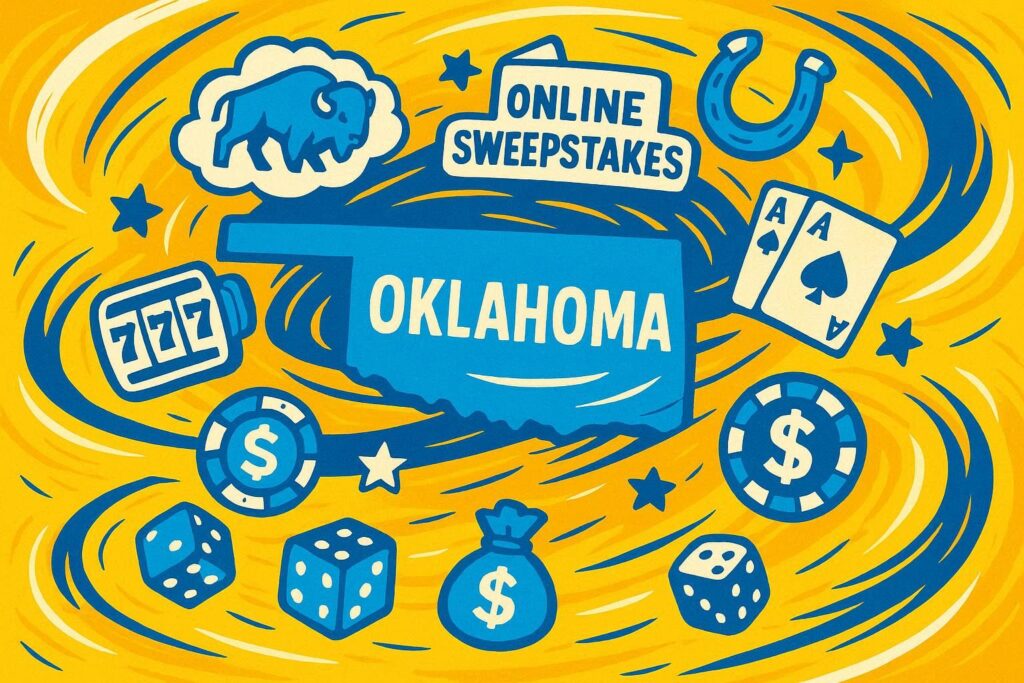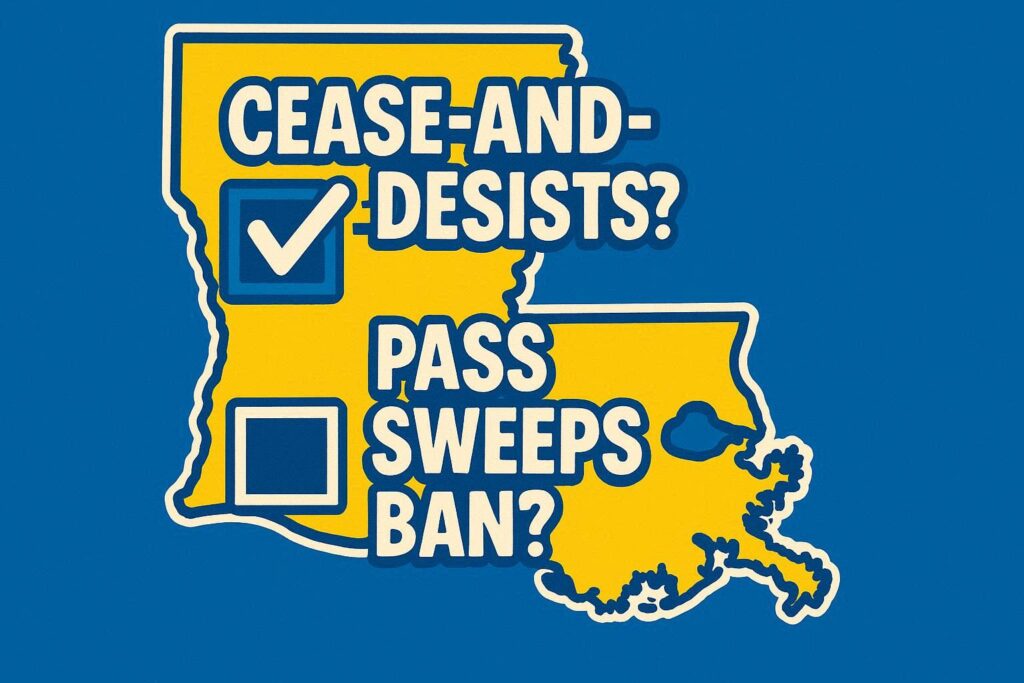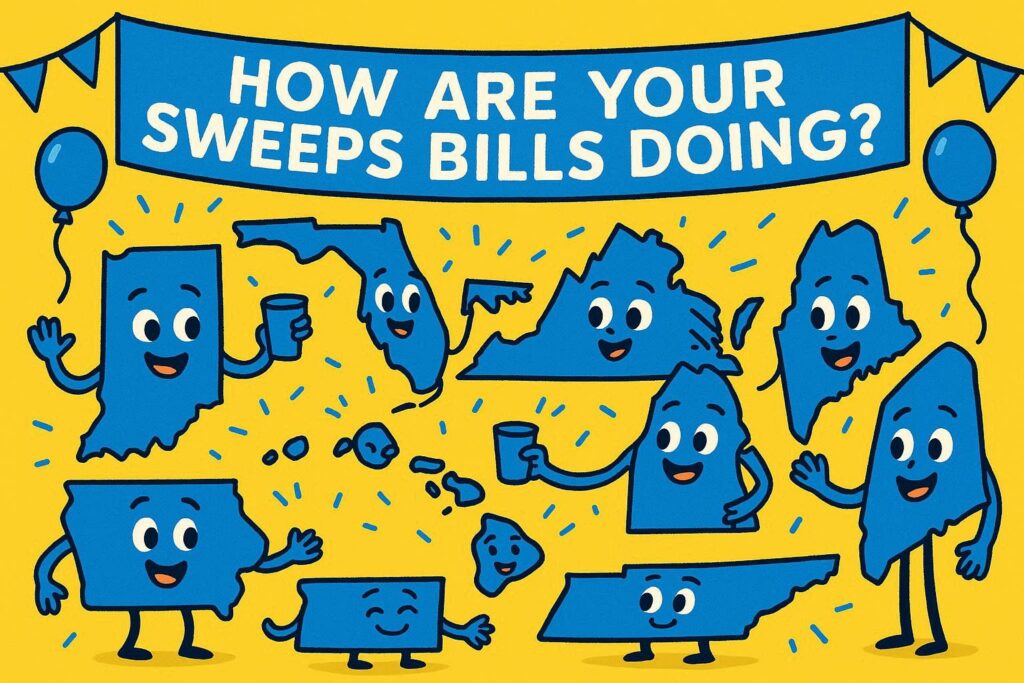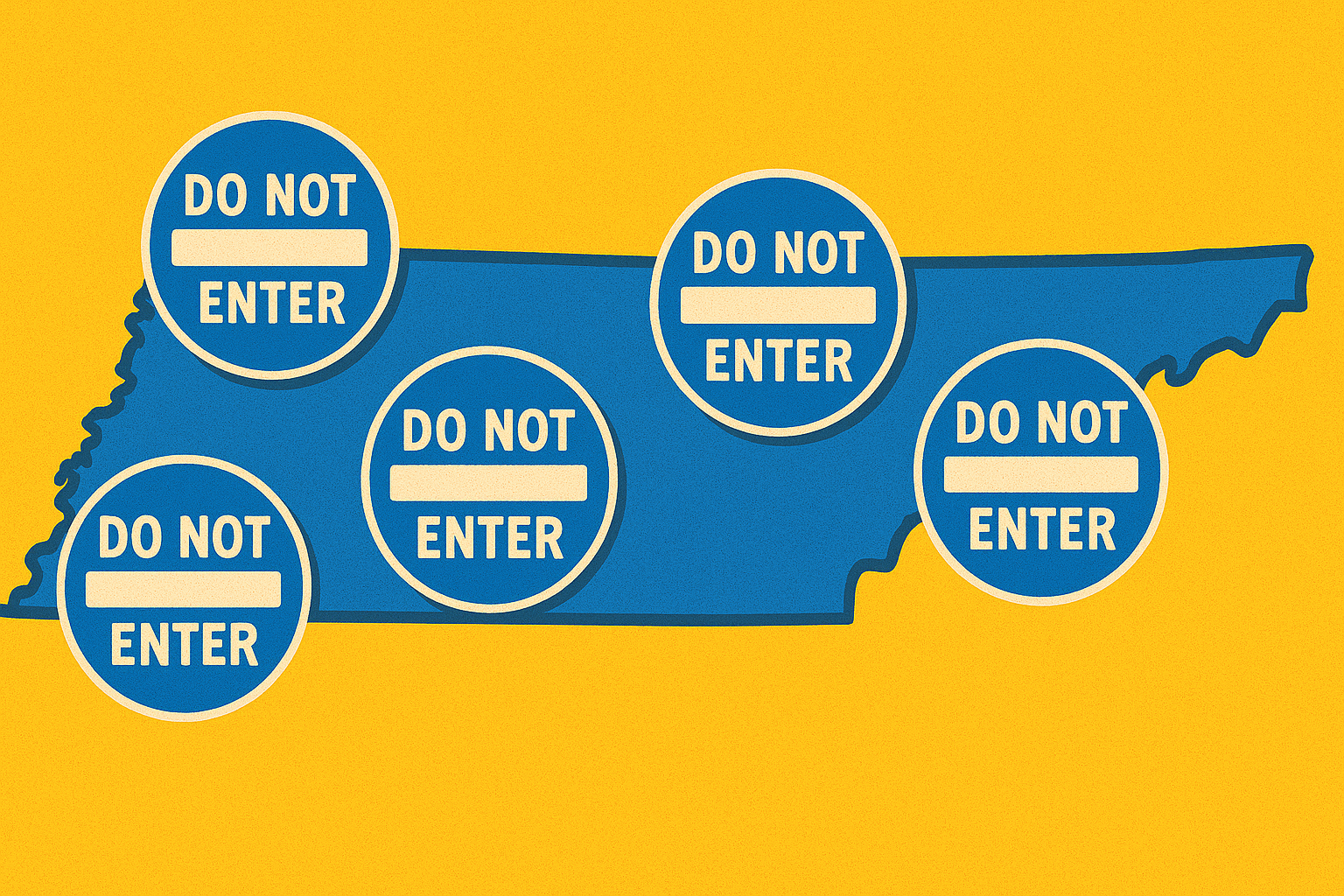Hey, proponents and opponents in the online sweepstakes gaming space.
How are we feeling?
Taking a quick rest now that most legislative sessions have reached their conclusions before gearing up for what comes next in the rest of 2025 — like further action from Attorney General’s offices and other bills in states with longer legislative sessions?
Truth is, 2025 has been a whirlwind of activity for folks on all sides of this debate. Although the activity has not ended by any means, we are at a natural point to stop (for, like, five minutes) and assess the playing field halfway through 2025.
So let’s take stock. Here are the highs and lows in the debate surrounding online sweeps casinos so far this year and who likely benefits.
Riding High
Letitia James
Letitia James, New York’s Attorney General, “broke the seal” so to speak on sweeping actions taken against sweeps operators from an AG’s office. Yes, other states previously issued cease-and-desist letters to a handful of operators — like Maryland.
But New York is New York.
And James didn’t target just a handful of operators.
She sent letters to 26 sweeps casinos.
James did this at a time when it seemed New York may not pass a sweeps ban bill, taking the matter into her own hands in a way that opened the door for other Attorneys General to do so — beginning a proverbial domino effect, so to speak.
Of course, New York wound up extending its legislative session and passing a sweeps ban bill anyway. The bill still needs to be signed.
Attorneys General
This is tied to James. Soon after her cease-and-desist letters, Attorneys General in Mississippi and Louisiana followed suit.
We’ll see if other AGs see the door thrusted open by James and walk through.
Light & Wonder
Light & Wonder, a gaming content provider for the gambling industry, came out of the first half of 2025 in great position, for a couple of reasons.
One: Howard Glaser, Global Head of Government Affairs and Legislative Counsel for Light & Wonder, became arguably the face of the anti-sweeps movement with his continuous updates and opinions he posted on LinkedIn. This elevated his — and, by proxy, Light & Wonder’s — profile with the anti-sweeps movement, drawing both attention and backlash.
Two: Light & Wonder is a competitor of the sweeps providers it’s trying to get kicked out of the U.S. Light & Wonder doesn’t offer a sweeps product, but it does have social casino gaming apps via SciPlay in Jackpot Party Casino, Gold Fish Casino Slots, Quick Hit Slots, and others.
SciPlay revenue rose to $821 million, up 6%, and once again outpaced social casino market revenue growth, delivered record payer metrics and expanded our direct-to-consumer high margin revenue channel, which was approximately 11% of total SciPlay revenue.
Businesswire.com
Sweeps operators, such as Chumba Casino and High 5 Casino, also offer free-to-play social casino platforms, where players can play for free with the option of buying digital currency purely for in-game usage.
So, in other words, Chumba’s social casino would be a direct competitor of an app like Jackpot Party Casino.
So, in other words, anything that hurts Chumba or other sweeps operators, either directly or indirectly, helps Jackpot Party Casino.
Small, unknown sweepstakes sites
While notable sweeps brands like VGW’s sites (Chumba Casino, LuckyLand Slots, and Global Poker) and Stake.us are easy targets for Attorneys General finding operators to send cease-and-desist letters to, there are literally hundreds of small sweeps sites out there — and, realistically, there is no way for an AG’s office to send cease-and-desist letters to all of them.
That leaves the door cracked open for these small, lesser-known platforms to keep operating until they are directly told not to. (Although that carries lots of risks — more on that later.)
So while a site like Chumba Casino can now only offer its social games in a state like Mississippi, where it was sent a sweeps cease-and-desist letter, a tiny random sweeps site like (and this is completely made up) RainingDogzCatz Casino can technically continue tempting fate and offering Sweeps Coins gaming to Mississippi residents.
Real-money operators, offshore sites
This one is pretty simple.
The fewer sweeps sites available, the less competition real-money operators like BetMGM and Caesars will face. Many prominent sweeps brands had already long ago pulled out of legal iGaming states, but there are still plenty active in those states. So anything deterring those platforms from operating in iGaming states is good for iGaming operators.
However, by the same token, those players who can no longer play with Sweeps Coins may now be more likely to play for real money or crypto currency using offshore sites like BetUS, BetOnline, or Ignition Casino.
Responsible gameplay at sweeps sites
One of the most notable effects of 2025 has been more sweeps sites increasing their minimum age to 21. Most sweeps casinos still have 18 as the minimum age requirement, but VGW and B-Two Operations (McLuck, Hello Millions, Play Fame, SpinBlitz, Jackpota, Mega Bonanza, SportsMillions) raised their requirement from 18 to 21, and so did Fortune Wheelz, NoLimitCoins, and Tao Fortune — all owned by A1 Development LLC.
Overall, based on 44 sweeps sites Sweepsy analyzed, we’re up to 43.2% with an age limit of 21. We expect that number to only increase as operators quickly try to find ways to prove to lawmakers and AG’s offices that they take safe gameplay seriously.
Facing Headwinds
Large sweeps brands
See the earlier section on why smaller brands are likely to benefit.
If you say “sweeps casino” to anyone even adjacent to this industry, chances are “Chumba Casino” pops into their head.
So, when an Attorney General is seeking operators to target in cease-and-desist letters, the big brands will always be a low-hanging-fruit choice to start off with. In fact, in the cease-and-desist letters Mississippi recently sent out to 10 operators, Chumba Casino was the only sweeps platform. The other nine were offshore sites.
Legislative trends
If we’re talking baseball here, the anti-sweeps crowd is batting .364 so far in 2025 in terms of states passing sweeps ban bills.
Counting California’s recently filed bill (or, really, its recently amended bill), 14 states have now introduced bills banning sweepstakes casinos in 2025.
Three states have still-active bills: California, New Jersey, and Ohio.
Eleven states have seen the fates of their bills decided: Arkansas, Mississippi, Maryland, Florida, Louisiana, Texas, Nevada, Montana, Connecticut, New York, and Illinois.
Four states passed bills — Nevada, Montana, Connecticut, and New York.
Bills in the other seven states failed to pass or were vetoed (Louisiana).
That’s a 36.4% success rate, which is well above the average rate for introduced bills to get passed during a legislative session, according to two legislative experts.
“Honestly, most bills don’t become law,” T.J. Rushing, senior editor of independent news site Iowa Starting Line told Sweepsy. “And we also get a lot of showy bills that are just about sending a message, generating a headline, or something you can tell the folks back home you fought for in Des Moines.”
Added Linh Ta, an Axios reporter based in Des Moines: “Definitely a ton of bills get introduced and then end up dying or not getting a committee hearing. … My guess is like 10% (pass)?”
Finality
If you thought the bulk of 2025 legislative sessions ending by mid-June would mark a dramatic fall-off in the sweepstakes gaming debate, you were very, very wrong.
We’re entering phase two, so to speak, where more AG’s offices may get involved, more states may introduce bills (see: California), and debate will continue on bills already introduced (see: New Jersey, Ohio).
That means there’s plenty more lobbying work to be done on both sides of this issue, so the Social Gaming Leadership Alliance and Social and Promotional Games Association will have their work cut out for them.
Players in states without iGaming
For players that don’t live in Michigan, Pennsylvania, New Jersey, West Virginia, Connecticut, Rhode Island, and Delaware, sweeps gaming provides an alternative that gives a similar experience.
Players are now losing those options, especially in Montana, New York, Louisiana, and Mississippi. Many operators have left Maryland as well.
Now, if those players want to continue getting a similar gaming experience, they can either play social casino games or turn to offshore gambling sites.
Opinions on sweepstakes gaming sites aside, the fact is that some players who enjoyed playing with Sweeps Coins on those sites will no longer have that option, which makes them losers on this list.
Easy decision-making
Choices in states where sweeps ban bills were passed — Connecticut, New York, and Montana — are actually very easy: Do not operate sweepstakes gaming platforms. Done. Simple. Don’t do it.
In states where bills have not been passed but cease-and-desist letters have been sent out, the decision is more difficult.
First, for operators named in the letters: Is it better to comply with demands and live to fight another day (positioning themselves as a compliant operator if regulation becomes an option in any state down the line) or choose to legally challenge the Attorney General in court to try to prove the legality of the sweepstakes platform?
The second option may seem worthwhile, but when you consider the costs of that legal proceeding, the likelihood of success, and the potential that, even if the operator wins, lawmakers may simply pass a sweeps ban bill anyway, the living to fight another day option becomes more appealing.
But still. There are valid arguments for either choice. Which makes it difficult.
Second, for operators not named in the letters: Do you tempt fate and continue operating until you’re sent a cease-and-desist letter? Is the short-term revenue worth the potential blacklisting you’d receive if you’re ever found out? Any platform continuing to operate in this scenario would guarantee itself it would never be part of a regulated sweeps marketplace, if that ever became an option in the state. And chances are it would spoil its chances in other states, too.
Celebrity endorsers
The California bill opened this can of worms.
The bill, or really an amendment to a current bill, Assembly Bill 831, includes language that “suggests that California celebrities pushing sweeps casinos — such as Drake, Paris Hilton and Ryan Seacrest — would be subject to liability for their roles in illegal casino advertising and promotion,” according to a post from Glaser on LinkedIn.
Now, involving celebrities could do two things.
One: It could make celebrities less likely to work with sweeps operators, which would spell bad news for those operators.
Two: It could add lobbying efforts on the pro-sweeps side, at least in California, if these sweeps deals are valuable enough to these celebrities. If Drake finds his endorsement deal with Stake.us highly valuable, for instance, his camp may work to remove the AB831 amendment.
It also opens up the can of worms around influencers.









